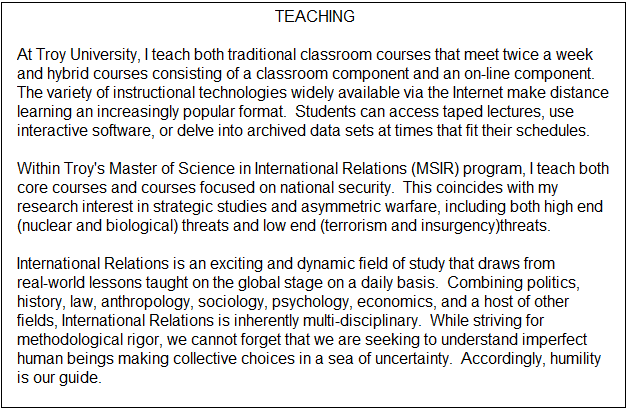Courses Taught
Graduate Courses
Terrorism & Political Violence
Military Strategy & International Relations
National Security Policy
Geostrategic Studies
Contemporary American Foreign Policy
Conflict Management in International Relations
Theory & Ideology in International Relations
Survey of International Relations
International Political Economy
Research Methods in International Relations
Special Topics: Iran and Nuclear Security
Special Topics: Seminar on the Iraq War
Special Topics: Seminar on NE Asian Politics
Undergraduate Courses
American Defense Policy
US Foreign Policy: Promoting Democracy
Introduction to International Relations
Introduction to Strategic Studies
Proliferation of Weapons of Mass Destruction
Terrorism and 21st Century America
The Modern Middle East
20th Century US Diplomatic History
Comparative Government
Politics of Developing Nations
American Government
American Political Parties & Elections
Classical PoliticalTheory
Law & Society






